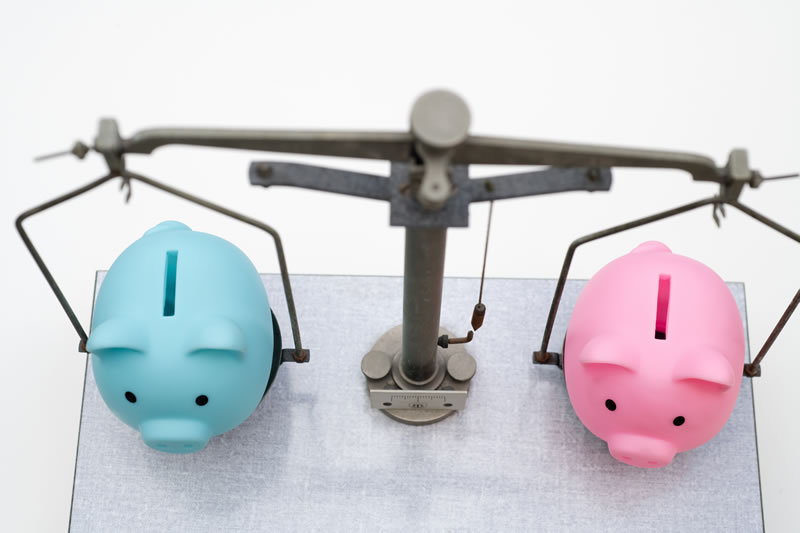Will You Pay Unnecessary Tax Before April?
This content is for information purposes only and should not be taken as financial advice or tax advice. Every effort has been made to ensure the information is correct and up-to-date at the time of writing. For personalised and regulated advice regarding your situation, please consult an independent financial adviser here at Castlegate in Grantham.
If someone offered to pay you thousands of pounds for a few hours work, would you do it? Most of us would say yes, yet baulk at the thought of going through our taxes. Yet in many cases, the result is the same. Here at Castlegate, our financial advisers here in Grantham spend lots of time helping people across the Midlands to get the most out of their wealth, both in the present and in the future. As we approach April 2020 (the start of the next tax year), therefore, we wanted to offer some ideas for sole traders, limited company directors and Higher Rate taxpayers to consider with regards to saving on unnecessary tax.
We hope you find this content useful. If you’d like to discuss your financial plan with us and discover the best ways to meet your financial, please book a free consultation via:
01476 591022
info@casfin.co.uk
Make use of your ISA
Many people have heard of individual savings accounts (ISAs) but don’t fully understand the benefits. In 2019-20, you can commit up to £20,000 per tax year into one or more ISAs. From there, any interest you earn, dividend income or capital gains from this capital will be tax-free.
If you have new money to invest, therefore, consider speaking to your financial adviser about potentially putting it into an ISA if you have not yet fully used your allowance. If you do not have new capital to invest, then do you hold investments elsewhere which could be moved to an ISA?
Dividend allowance
In 2019-20, you can receive up to £2,000 per tax year from dividends (i.e. your dividend allowance) before you face a tax which is tied to your rate of Income Tax. Again, remember that dividend tax can be avoided on shares held within an ISA.
Outside of this tax-efficient “wrapper”, however, you could consider adding your partner, husband or wife as a shareholder in your company. That way, your household could effectively make use of two £2,000 dividend allowances to save overall on tax. Here, you need to be careful, however. Make sure you seek professional tax advice and consider your wider business strategy before committing to such a course, otherwise you could court trouble from HMRC.
Capital gains
In 2019-20 you are allowed to sell assets for profit worth up to £12,000 (i.e. your capital gains tax allowance) before you face capital gains tax, varying according to your Income Tax rate.
You are forbidden to carry forward any unused CGT allowance to the next tax year, but you can combine your allowance with your spouse’s/civil partner’s to produce a total allowance of up to £24,000. You can also offset gains by carrying forward any losses that haven’t been used.
Pension contributions
Currently, in 2019-20, you are allowed to contribute up to £40,000 per tax year into your pension(s) or up to 100% of your salary (whichever is lower). This is known as your annual allowance, and you can carry forward any unused allowance from the past three tax years.
Contributing to a pension is important to think about since the government provides tax relief on your contributions depending on your rate of income tax. If you’re a Basic Rate taxpayer, for instance, the relief amounts to 20% whilst for a Higher Rate taxpayer it would be 40%. This amounts to “free money” from the government, as the salary you would have paid to them in tax is instead funnelled into your pension.
Be careful, therefore, to make the most of your annual allowance within each tax year. Speak to your tax adviser if you believe you have missed out on previous years, moreover.
Property & trading income
Do offer homestay services via websites such as Airbnb? Is any of your income derived from gardening, babysitting or other casual services? Since 6 April 2017, you are allowed to earn up to £1,000 each tax year without facing tax from trading or property income. Make sure you don’t forget about this and pay more tax than you need to!
Giving to charity
If you’re a Higher Rate taxpayer (i.e. you earn over £50,000 in 2019-20), then it is possible to save on tax through charitable giving. Using Gift Aid, charities can claim 25p from the government for every £1 they receive from a taxpayer. Using your tax return, you could then claim back 25p for each pound you donated via Gift Aid.
The Rent a Room Scheme
Are you renting out a room to a lodger in your main residence (or thinking about doing so)? The Rent a Room Scheme allows you to do so, generating rental income free from tax up to £7,500 (or up to £3,750 if, for instance, you are a joint owner). To qualify for the scheme you must provide a furnished room to your lodger. Please note that you can also use the scheme if you run a guest house or break and breakfast. You cannot use the scheme if your lodger’s room is used for a business or office, or if you are living overseas.
Invitation
If you are interested in discussing your own financial plan or retirement strategy with us, please get in touch to arrange a no-commitment financial consultation at our expense:
01476 591022
info@casfin.co.uk












